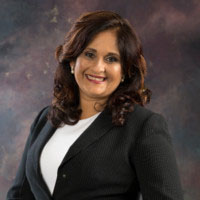By Dr Indera Sagewan
Specialist Consultant, Competitiveness, Clusters and Value Chains
(Reprinted from the Trinidad Guardian)
The inspirational speech of CARICOM’s Chairperson and PM of Barbados Mia Mottley at the Energy Conference 2020 has been well reported on. Her call for regional unity in the exploration of our energy resources is long overdue. Credit to her, she has actioned this call by signing an agreement with T&T for the exploitation of any hydrocarbons that may be discovered in Barbados’ waters because we have the experience, knowledge and skills.
This is the reasoned CARICOM leadership needed at this juncture of the region’s development and given the convulsions both globally and regionally in energy. Individual island states have both similar and varied resource stocks as well as varying experiences and competences which should be leveraged to a common regional purpose, in this case, energy accessibility, affordability and security. It is therefore as much a time for specialization and trade as it is for competition in energy amongst CARICOM’s members.
Chairman Motley is right, this “requires self-examination on our part to determine how we move.. to chart a way that can secure prosperity at best and stability at worst, for our people.” What is “the how” of the assignment? Yes, Guyana is the new Centre of the oil universe. T&T salivates on how to capture a piece of the action especially given the slowdown in its domestic energy sector. But there is “bad-Blood”, the “Trickidadian syndrome” which pushes Guyana deliberately away from Chairman Mottley’s call. And what about renewables? Where in the region will its Centre settle? Dominica? Barbados? Belize? Or will it be multiple Centres based on natural and competitive advantages? Do we have a mechanism or dare I say the leadership maturity to be guided by rationale analysis in regional best interest, or, will it be business as usual, every island for itself and to its detriment?
The upstream Czars (BP, Shell, BHP, NGC) describe the energy industry as being in a “state of ambiguity”, it is “not yet a zero carbon world” and alternatives are far from meeting world demand, though moving at an exponential rate. And so “as natural gas remains the cleanest fossil fuel”, they press on in a world of severe gas price competition to continuously seek greater operating efficiencies, while gingerly investing in beyond oil and gas projects in response to a greening imperative. In essence, the upstream intends to stay in the fossil fuel game for as long as it’s profitable to do so.
So, Madam Chair of CARICOM, it is left to you to inspire regional leaders to define the CARICOM position, to as you say, find the confidence to “manage our affairs” such that “our actions be based on principles and values”.
I daresay, a Herculean task. Substance is certainly needed on what you call only a “veiled reference at article 15 of the revised Treaty of Chaguaramas” to the issue of energy.
Brian McShane Senior Vice President, INTECSEA, provided a skeletal framework at the Conference that can guide the Caribbean through this shifting energy landscape. Noting that the Caribbean in increasingly becoming a deep-water basin, he explained that this demands specialized skills, services, equipment, technology, know-how which may or may not yet be present in the region. He therefore advises the development of “a Caribbean Energy masterplan, coordinated and continuous, with a sense of urgency”. In this process, the Region must assess its capabilities and constraints as these emerging industry characteristic require “different projects, brings different challenges and calls for different solutions.”
It changes the skills and jobs landscape for the region; not traditional engineering but engineering based on data analytics and digitization, specialized operations, fabrications, equipment, financing etc. McShane recommends leveraging of capabilities and experiences across the region to achieve the benefits of specialization, scale and efficiency, with each country deepening its expertise based on natural, comparative and competitive advantage. He underscored the importance of education reform, matching curriculum to purpose and adds that such a plan should also speak to how we use energy, citing the example of Chile which now educates its children on the usage of energy.
Madam Mottley, the future of energy is now, the Caribbean courtesy Guyana (soon Suriname?) again factors significantly in the fossil space. But we can also play aggressively in the alternative spaces if we choose. Will we be deliberate in defining for ourselves where and how we sit at the table? Or, will we continue to allow others to draw up the agenda? It is a time to mandate the CARICOM to action. Madam Chair, I commend these recommendations to you.






